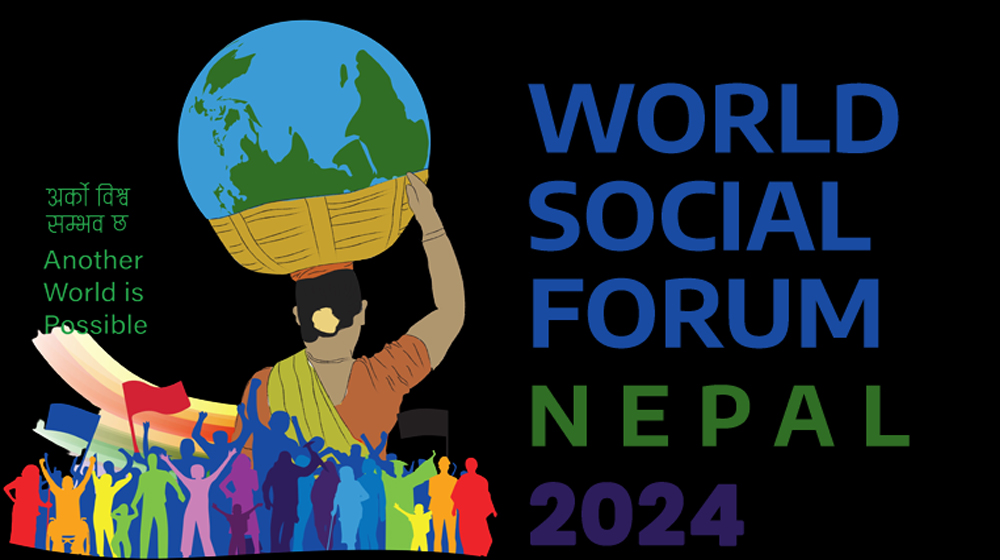
Kathmandu, Feb 17: Dozens of the events are being held under the ongoing World Social Forum 2024, gathering thousands of people from diverse sectors, who whet debates on world’s pressing issues ranging from climate change to social justice, and to development and democracy to empowerment.
In an event hosted by Vijaya Development Resource Centre (VDRC) here Saturday, the experts underlined need of the democracy that delivers well to the voiceless and marginalized community where the social justice can be an effective tool.
They mentioned civil movement and engagement could reinforce democratic values and prepare atmosphere to cater social justice. The event was run under the theme of ‘Localizing social justice: A movement for civic engagement in democracy’ at Nepal Law Campus, Kathmandu.
“Information is prerequisite to functional democracy, and for people’s meaningful engagement in government activities,” said Anjali Bhardwaj, Founder of Satarak Nagrik Sangathan (SNS), India. Delivering her opinion in the panel discussion, Bhardwaj insisted that in absence of information, citizens are rendered powerless, feeble and get deprived of their rights.
Bhardwaj also shared how right to information (RTI) brought changes in India. “If democracy functions, it should service people,” she stressed. Sharing information is sharing power. RTI holds power to account, Bhardwaj reminded.
Similarly, former Chief Justice Sushila Karki suggested judicial activism to ensure social justice. She expressed worry over discrimination existing in many forms in Nepal. She urged the government to take a progressive measure to implement the fundamental rights of the citizens enshrined by the Constitution so that social justice would be ensured effectively.
“Being too liberal and modern in words, but too lackadaisical in action is contradictory,” she reminded. She sought political accountability for better governance and urged the civil society to keep tab on those who hold power.
Another expert Jaya Luintel, Co-founder and president of The Story Kitchen, opined that three dimensions in the society: voice, knowledge and power could be studied to analyze status of social justice in any community or State.
As she asserted, achievement of social justice remains elusive until voices of people from the marginalised community, including women, gender and sexual minorities are heard and addressed. “They must have their participation in the knowledge-making, and in power to provide a ground for social justice to thrive,” Luintel argued.
Moreover, she viewed the concept and implementation of social justice starts right from the home. Home which is considered a comfortable and a safe zone for individuals, is ironically not so for many women, she said, urging the government to adopt victim-centric perspectives while dealing with transitional justice.
Executive Director at VDRC, Keshab Prasad Sapkota, shared information on how VDRC was working on different fronts to contribute to social justice. Community development and social justice are major themes and activities forwarded by VDRC since in establishment, he said, adding that awareness and empowerment were given equal importance. VDRC focuses multiple fronts ranging from education, and cooperatives to information/awareness and economic justice, which, he argued, finally upholds democracy.
Sapkota showed concerns over shrinking civic space in Nepal and called for unity among civil society so that unified voice would be augmented. According to him, the cooperatives run by community initiative are not in crisis at all. The WSF 2024 begun in Kathmandu under the theme ‘Another World is Possible’ will last through February 19. It has participation of CSOs from over 92 countries across the globe.
Comments